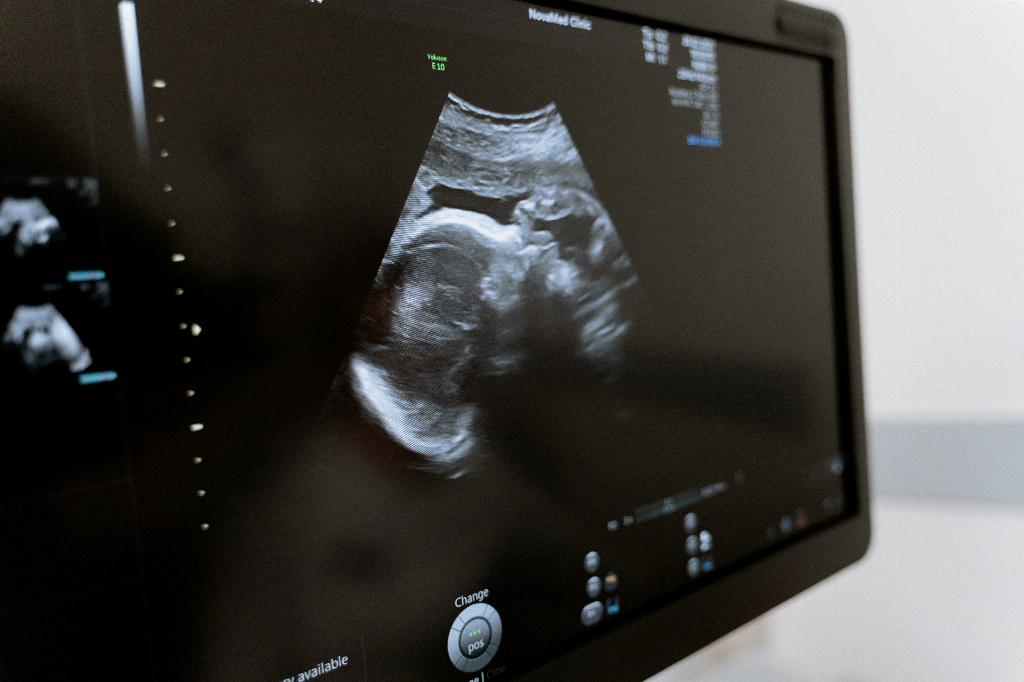When it comes to detecting pregnancy through sonograms, there are essential factors to consider, including the timing of the scan and the stage of pregnancy. Providers can typically detect the presence of an embryo via ultrasound as early as six weeks into the pregnancy.
Early Development and Detection
During the initial stages of pregnancy, an embryo forms and begins its development. By the eighth week, this embryo transforms into a fetus. It’s crucial to note that the accuracy of detecting a fetal heartbeat may be influenced by the accuracy of the last menstrual period.
Factors Affecting Detection
The timing of the sonogram plays a vital role in the accuracy of pregnancy detection. If the ultrasound is conducted too early, possibly before six weeks, the embryonic structures may not yet be visible. This could lead to a false perception of the absence of pregnancy.
Importance of Gestational Age
Determining the gestational age of the pregnancy is crucial for accurate detection through a sonogram. The gestational age reflects the actual age of the pregnancy based on the date of conception, rather than the last menstrual period, which may vary for some individuals.
Transvaginal vs. Abdominal Sonograms
Depending on the gestational age and individual circumstances, healthcare providers may choose between a transvaginal or abdominal sonogram. Transvaginal ultrasounds are often preferred for early pregnancy detection due to their higher sensitivity in capturing detailed images.
Clarity and Resolution
The clarity and resolution of the sonogram images are crucial for accurate pregnancy detection. Advanced ultrasound technology can provide clearer images, enabling healthcare providers to visualize embryonic structures and identify developmental milestones with greater precision.
Monitoring Development Progress
Regular sonogram appointments throughout pregnancy allow healthcare providers to monitor the progress of fetal development. These scans provide valuable insights into the growth, health, and well-being of the fetus, ensuring optimal prenatal care and management.
Diagnostic Purposes
Sonograms serve not only as a means of confirming pregnancy but also as a diagnostic tool for assessing fetal health and detecting any potential abnormalities or complications. Early detection through sonograms can facilitate timely interventions and appropriate medical care.
Emotional Connection
For expectant parents, sonograms offer a unique opportunity to connect emotionally with their unborn child. The visual confirmation of pregnancy through ultrasound images can deepen the bond between parents and the baby, fostering a sense of anticipation and joy.
Ultrasound Safety
Ultrasounds are considered safe and non-invasive procedures for both the mother and the developing fetus. Healthcare providers adhere to strict guidelines to ensure the safety and well-being of pregnant individuals during sonogram examinations, minimizing potential risks.
Educational Insights
Through the information obtained from sonograms, expectant parents can gain valuable insights into the development and growth of their baby. Understanding the visual cues provided by ultrasound scans can enhance the prenatal experience and promote parental engagement with the pregnancy journey.
Final Thoughts
In conclusion, the timing, accuracy, and technology utilized in sonograms play a significant role in detecting pregnancy during early gestational stages. By embracing the insights and emotional connections fostered by ultrasound examinations, individuals can embark on a journey of anticipation, care, and excitement as they await the arrival of their newborn.

